Africa
Nigerian farmers struggle as climate change dries up water sources
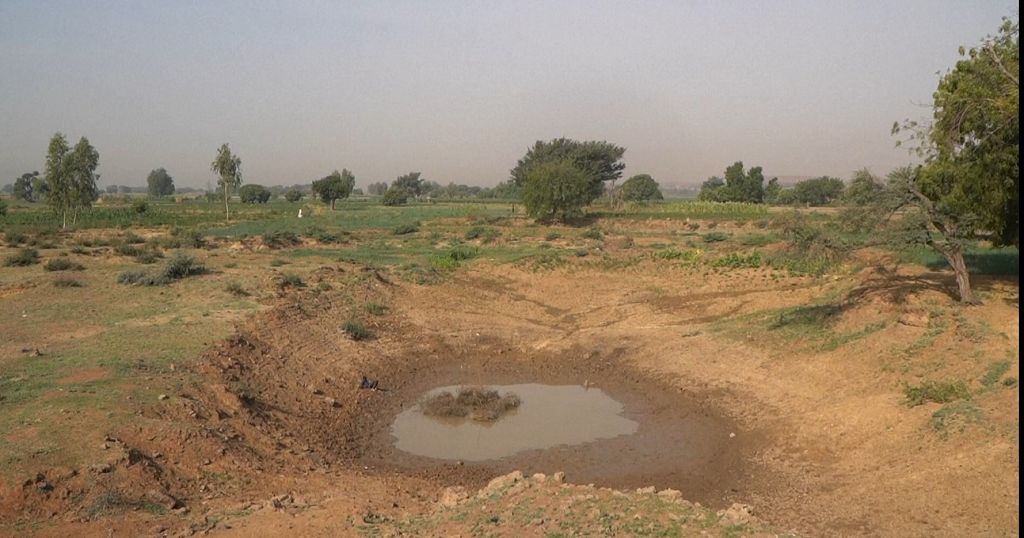
Farmers in Nigeria are finding it increasingly difficult to get enough water for their crops. Riverbeds have started to run dry leading some to have no choice but to pump for groundwater. The finger is pointed firmly at climate change, with conservationists warning that food could become scarce if measures are not urgently put in place to help the farmers irrigate their land. STORYLINE: The ground is cracked and dry – once a lake and a river had been here.
These are the conditions for farmers in Nigeria and many believe climate change is to blame. After two decades of working his farm in north-western Nigeria, and struggling to find water for his crops, Nasiru Bello has no other option but to resort to pumping groundwater. A muddy puddle is all that remains of a river that had provided water for his over five-hectare farm and those of others in the Kwalkwalawa community in arid Sokoto state. “All these things are a result of climate change, because in the previous years we didn’t know the dryness of rivers like that but now due to climate change they are dry.
Surely, all the people around there, some of them counted the loss some years back when the rivers dried because they don’t have any means of irrigation apart from the river,” says Bello. He continues to plant his leeks in the dry earth. “I am facing a lot of difficulties because I’m not using the river,” he says. “It’s a well and sometimes you can dig a well but it dries up while you’re using it. You have to dig another one and to dig another is not easy because you have to spend money on any well that you are going to dig. And you don’t have the money to charge generators (to power the well) every year, you will be managing the ones you have until you get the money to buy another one. If you don’t, you will continue to manage it.”
Climate change is challenging agriculture in Nigeria, Africa’s most populous country. The decisions of farmers in the north, which accounts for about 70 per cent of Nigeria’s agriculture, are already affecting food prices and availability in the booming coastal south that’s home to the city of Lagos (with an estimated population of over 21 million people). Farmers say once-reliable water bodies are drying up.
And they have few resources to draw on. More than 80% of Nigeria’s farmers are smallholder farmers, who account for 90% of the country’s annual agricultural production. Some work their fields with little more than a piece of roughly carved wood and their bare hands. Maize, Nigeria’s largest cereal crop, saw a decline in cultivated land from 6.2 million hectares in 2021 to 5.8 million hectares in 2022, according to AFEX, a licensed private commodities exchange.
For years, Nigerians and others have taken note of the dramatic example of Lake Chad in the country’s northeast. It has shrunk by about 90%. There is little data available on the drying-up of other, smaller water bodies across the north. But farmers say the trend has been worsening. Elsewhere in Sokoto state, Umoru Muazu is tilling his farm to cultivate various crops without the certainty of a meaningful harvest. He says: “The year we started, we had enough water but now there is no water. Therefore, we have to dig a well in order to get water to continue to irrigate, except in the rainy season.
In the rainy season, we get water, but not now since the water withdrew, and before it didn’t dry as early as this, but now it does. We must dig a well to complete our work.” Nigeria is forecast to become the world’s third most populous nation by 2050, alongside the United States and after India and China. Experts are warning about the impacts of decreasing crop yields.
Dr. Isa Yusuf-Sokoto is an environmentalist from Sokoto’s Umaru Ali Shinkafi Polytechnic, he says: “The drying of rivers, lakes, streams in recent decades is associated to climate change that has come to stay. This is coupled with the precarious nature of Sokoto State being semi-arid region whereby desertification and other related climatic problems have been bedeviling the area. So this is why we’re battling with drought, which is the farmers are now complaining.”
Dr Yusuf-Sokoto explains how studies have shown that two-thirds of the trees across Sokoto are now gone, which contributes to rising temperatures. “If there is no intervention to farmers and this intervention has to be an emergency one,” he says. “There will virtually be a crisis, food crisis will occur, water crisis will also come up, and even health crisis can come up because all these are sons and daughters that could be given birth by climate change crisis.”
The decreasing farm yields are being felt elsewhere in Nigeria, especially in the south. Data from the government-run statistics agency show that local agriculture contributed 22% of Nigeria’s GDP in the second quarter of 2024, down from 25% in the previous quarter, while food imports reached their highest in five years.
With Nigeria’s population expected to reach 400 million by 2050, the U.N. Food and Agriculture Organization has been encouraging climate-smart agriculture to help ensure food security. Nigeria’s government has directed agricultural research institutes to develop solutions. That couldn’t come soon enough – for now farmers like Bello and Muazu continue to try cultivating in dry earth.
Africa
Burkina Faso forces killed 100 civilians in March – HRW

At least 100 civilians were killed by Burkina Faso government forces in March near the western town of Solenzo, Human Rights Watch said Monday.
According to victim testimony and videos shared on social media gathered by the rights group, the attackers were Burkina Faso special forces and members of a pro-government militia, the Volunteers for the Defense of the Homeland.
The victims were all ethnic Fulani, a pastoralist community that is widespread across the region, which the government has long accused of supporting Muslim militants.
An earlier report from Human Rights Watch stated that the government’s involvement was likely, because of video evidence on social media, although the findings were not definitive.
The government issued a sharp denial when first reports surfaced, saying in a statement it “condemned the propagation, on social media, of images inducing hate and community violence, and fake information aimed at undermining social cohesion” in the country.
“The viral videos of the atrocities by pro-government militias near Solenzo sent shock waves through Africa’s Sahel region, but they told only part of the story,” said Ilaria Allegrozzi, senior Sahel researcher at Human Rights Watch. “Further research uncovered that Burkina Faso’s military was responsible for these mass killings of Fulani civilians, which were followed by deadly reprisals by an Islamist armed group. The government needs to impartially investigate these deaths and prosecute all those responsible.”
Burkina Faso authorities did not immediately reply to a request for comment on the group’s new report.
The landlocked nation of 23 million people has symbolized the security crisis in the arid Sahel region south of the Sahara in recent years. It has been shaken by violence from extremist groups linked to Al-Qaeda and the Islamic State group, and the governments fighting them.
The military junta, which took power in 2022, failed to provide the stability it promised. According to conservative estimates, more than 60% of the country is now outside of government control, more than 2.1 million people have lost their homes and almost 6.5 million need humanitarian aid to survive.
The attack in the western Boucle du Mouhoun region, including Solenzo and other towns, began on Feb. 27 and lasted until April 2, involving hundreds of government troops and drones, according to eyewitnesses quoted in the report.
“The VDPs shot at us like animals, while drones were flying over our heads. Many women and children died because they could not run,” said a Fulani herder, 44, from Solenzo, referring to the pro-government militias.
After the attack, hundreds of Fulani residents fled across the border into neighbouring Mali, the report said.
“Today, in the whole province, there are no more Fulani — they all fled or were killed or taken hostage,” said a 53-year-old man from Solenzo. “But the other (ethnic) communities remain.”
After the government forces left, the report said that jihadist fighters from a group known as JNIM reentered the towns and carried out reprisal killings against residents, targeting the men whom it considered to be military collaborators.
“All the men had been executed in front of the health center,” said a 60-year-old woman who witnessed JNIM abuses in Tiao village, a town to the northeast of Solenzo on April 5. “I counted up to 70 bodies.”
According to analysts, the junta’s strategy of military escalation, including mass recruitment of civilians for poorly trained militia units, has exacerbated tensions between ethnic groups.
It it impossible to get an accurate picture of the situation in the country since the military leadership has installed a system of de facto censorship, rights groups said, and those daring to speak up can be openly abducted, imprisoned or forcefully drafted into the army.
Africa
China, U.S. agree to lower tariffs in major trade war de-escalation
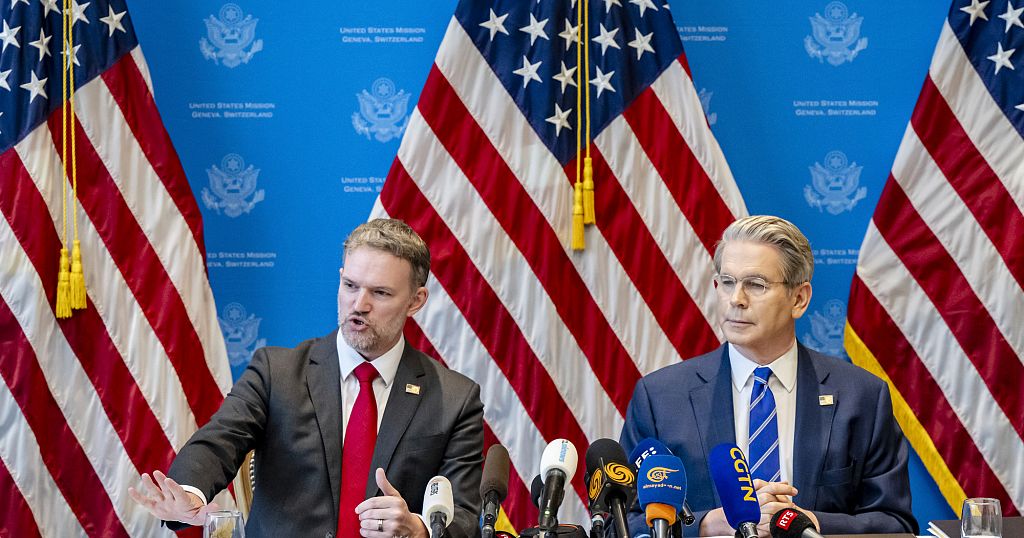
U.S. and Chinese officials said Monday they had reached a deal to roll back most of their recent tariffs and call a 90-day truce in their trade war for more talks on resolving their trade disputes.
Stock markets rose sharply as the globe’s two major economic powers took a step back from a clash that has unsettled the global economy.
U.S. Trade Representative Jamieson Greer said the U.S. agreed to drop its 145% tariff rate on Chinese goods by 115 percentage points to 30%, while China agreed to lower its rate on U.S. goods by the same amount to 10%.
Greer and Treasury Secretary Scott Bessent announced the tariff reductions at a news conference in Geneva.
The two officials struck a positive tone as they said the two sides had set up consultations to continue discussing their trade issues. Bessent said at the news briefing after two days of talks that the high tariff levels would have amounted to a complete blockage of each sides goods, an outcome neither side wants.
“The consensus from both delegations this weekend is neither side wants a decoupling,” Bessent said. “And what had occurred with these very high tariff … was an embargo, the equivalent of an embargo. And neither side wants that. We do want trade.”
China reacts
China’s Commerce Ministry said the two sides agreed to cancel 91% in tariffs on each other’s goods and suspend another 24% in tariffs for 90 days, bringing the total reduction to 115 percentage points.
The ministry called the agreement an important step for the resolution of the two countries’ differences and said it lays the foundation for further cooperation.
“This initiative aligns with the expectations of producers and consumers in both countries and serves the interests of both nations as well as the common interests of the world,” a ministry statement said.
US President Donald Trump last month raised U.S. tariffs on China to a combined 145% and China retaliated by hitting American imports with a 125% levy. Tariffs that high essentially amount to the two countries boycotting each other’s products, disrupting trade that last year topped $660 billion.
Africa
Putin proposes peace talks amid skepticism
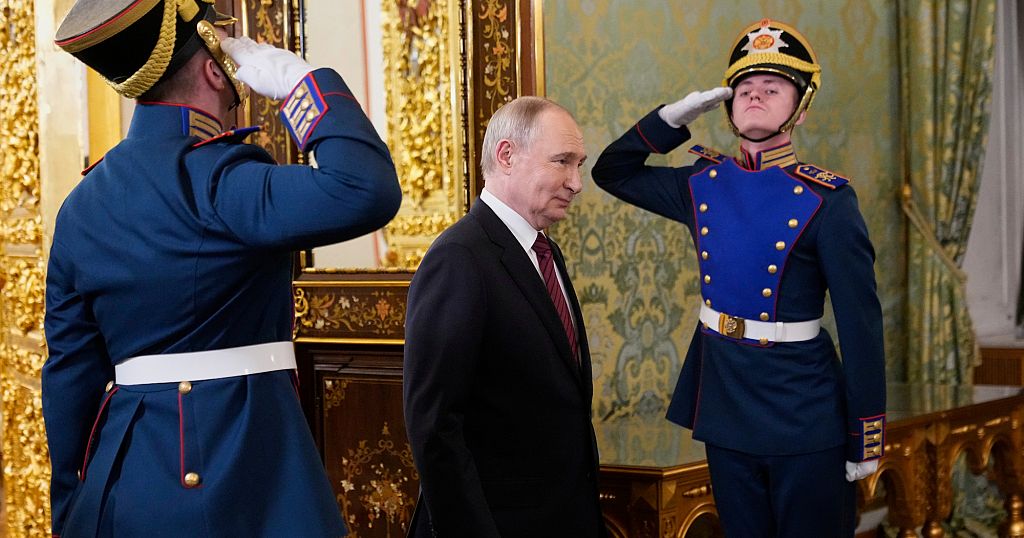
Moscow residents reacted with restraint to Russian President Vladimir Putin’s proposal to hold direct talks with Ukraine. “Negotiations were necessary from the very beginning, but it seems to me that the Ukrainian side will not agree to such negotiations,” one of them said. Another one noted that Putin was right by proposing talks but assumed that even if Ukraine agrees, the negotiations will lead to nothing and the conflict will continue “until Zelenskyy matures in his decision to finally stop the war”.
Putin proposed restarting direct talks with Ukraine in Istanbul on May 15, “without preconditions,” an offer that came in response to Ukraine and its allies urging Moscow to commit to an unconditional 30-day ceasefire or face additional sanctions. Putin referenced the unsuccessful 2022 peace talks that took place in Istanbul in March, shortly after Moscow’s full-scale invasion, and proposed “restarting” them without preconditions in remarks to reporters in the early hours of Sunday. “We are committed to serious negotiations with Ukraine,” Putin said, adding that he doesn’t rule out agreeing to a ceasefire later, in the course of direct talks with Ukraine.
Putin’s proposal came after leaders from four major European countries threatened to ratchet up pressure on Moscow if it does not accept an unconditional 30-day ceasefire in Ukraine that they offered on Saturday in a strong show of unity with Kyiv. The leaders of France, the United Kingdom, Germany and Poland said their proposal for a ceasefire to start on Monday was supported by U.S. President Donald Trump, whom they had briefed over the phone earlier in the day.
In a social media post several hours after Putin’s remarks, U.S. President Donald Trump said it was “a potentially great day for Russia and Ukraine!” “I will continue to work with both sides to make sure that it happens. The USA wants to focus, instead, on Rebuilding and Trade. A BIG week upcoming!” he added.
Ukrainian President Volodymyr Zelenskyy on Sunday welcomed Russia’s offer for direct peace talks, but insisted there must be a full, temporary ceasefire in place before negotiations can start. Zelenskyy, writing on X, called Russian President Vladimir Putin’s counter-offer to start talks without a ceasefire a “positive sign,” and said that “the entire world has been waiting for this for a very long time.” He added, however, that “the very first step in truly ending any war is a ceasefire.”
Meanwhile, Russia resumed mass drone attacks in Ukraine early on Sunday, after its self-declared 3-day pause expired. Turkish President Recep Tayyip Erdogan told France’s Emmanuel Macron in a telephone call that Turkey was ready to contribute to peace between Russia and Ukraine, including hosting negotiations to “establish ceasefire and lasting peace.” During the call Sunday, Erdogan said a “historic turning point” had been reached in efforts to end the war, according to a statement from the Turkish presidential communications office.
-
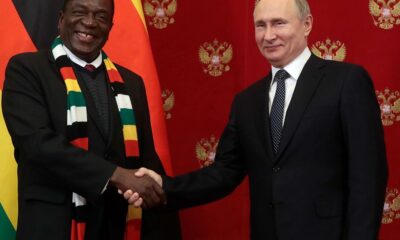
 Africa2 days ago
Africa2 days agoPutin hosts talks with African leaders on security
-
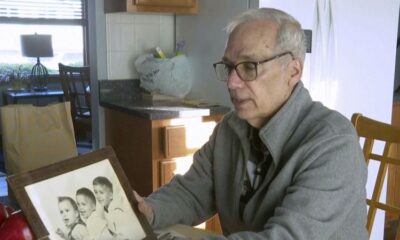
 Europe2 days ago
Europe2 days agoPope Leo XIV: A White Sox fan who calls his brother daily from Rome
-

 Sports1 day ago
Sports1 day agoShedeur Sanders aiming to ‘prove himself right’ instead of other ‘people wrong’ as he begins NFL career
-

 Europe22 hours ago
Europe22 hours agoA bridge builder and quiet reformer. How Pope Leo will lead the Catholic Church
-

 Sports2 days ago
Sports2 days agoJannik Sinner has ‘remarkable’ return to tennis at Italian Open after doping ban
-

 Europe1 day ago
Europe1 day agoEverything you need to know about the Cannes Film Festival 2025
-

 Sports17 hours ago
Sports17 hours agoAfrican arm wrestling is growing in strength
-
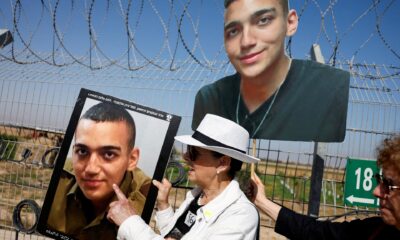
 Middle East1 day ago
Middle East1 day agoHamas says it will release US-Israeli captive Edan Alexander | Israel-Palestine conflict News




